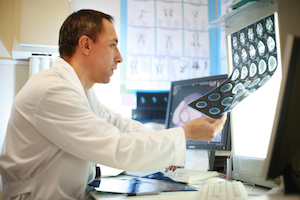A District Attorney in Sonoma County, California has come under fire recently for declining to file charges against a police officer who fatally shot a toy-gun carrying 13-year-old last October. At particular issue is the DA’s choice to consult psychology expert witness William Lewinski, an authority on “reaction times and shooting dynamics” who consults with police officers and frequently testifies on their behalf in police shooting trials.
Police Officer Fatally Shoots Teenager
The tragic origins of the case occurred last October when Sonoma County Detective Erick Gelhaus fired seven shots into Andy Lopez, a teenager carrying a plastic AK-47 with the distinctive orange cap removed. Believing the weapon was real, Gelhaus shot the 13-year-old Lopez after the boy started to run towards him ignoring instruction to drop the gun. District Attorney Jill Ravitch was called on to review the Lopez shooting in order to determine if Detective Gelhaus would face any criminal charges, and reached out to Mr. Lewinski for his expert testimony on the subject of police shooting.
Police Shooting Expert Witness finds No Wrongdoing
District Attorney Ravich reached out to Mr. Lewinski because his experience developing and researching the field of police shooting psychology would help her make the decision about whether or not to press charges in the shooting death of Andy Lopez by Detective Erick Gelhaus. Lewinski’s research incorporates behavioral science principals to situations in which police officers are place in a potentially life threatening situation in order to explain why officers fire their weapons in an effort to help prosecutors or jurors determine whether or not the shooting was justified, or if it was negligent or criminal.
After reviewing witness statements, interviewing Officer Gelhaus, and examining the case files, Mr. Lewinsky produced a 14-page expert witness report that found Gelhaus’ explanation of the shooting “supportable to a high degree of scientific certainty.” Noting that Gelhaus had good reason to believe his life was in danger when Lopez ran at him with what reasonably appeared to be a real gun, Mr. Lewinksy wrote, “From a behavioral science perspective and an action / reaction paradigm, Gelhaus couldn’t wait until the gun was pointed at him, but had to fire, and keep firing, until the perceived threat was removed.” Mr. Lewinsky’s expert report remains a significant factor in DA Ravich’s decision to not file criminal charges against Officer Gelhaus.
Police Shooting Expert has History Siding with Officers
Critics of Ravich’s decision to not file charges point to the selection of Mr. Lewinsky as an expert witness likely to side with Officer Gelhaus. Mr. Lewinsky has earned a reputation as being a police psychology expert witness who consistently supports the actions of officers in police shooting situations. In 2010, Lewinsky was called as an expert witness in the shooting trial of police officer Johannes Mehserle after he shot unarmed train passenger Oscar Grant on an Oakland transit platform. Informing the jury that “in-attentional blindness” and “muscle memory” can cause a police officer under stress to mistake his gun for his Taser – carried on the opposite hip – and mistake a potential suspect as being armed and dangerous, Lewinsky’s testimony explaining Mehserle’s actions were key in having charges reduced from murder to involuntary manslaughter.
Throughout his career, Mr. Lewinsky has offered similar testimony in a large number of police officer shooting cases, frequently telling judges and jurors that police are justified in opening fire as soon as they perceive a potential threat, which can occur before a gun is pointed at them. Lewinsky’s ‘shoot-first doctrine’ is, he claims, the result of years of research and is held in high regard by “top experts in the legal, academic, and criminal justice communities worldwide.” His research on police reaction times and perception of violent resistance has been called upon in several criminal and civil trials, and his prominent expert witness status makes him a fixture in the psychology of police shooting. District Attorney Jill Ravich certainly knew of Mr. Lewinsky’s history as an expert witness when selecting him, however, critics of her choice have yet to offer reliable expert testimony countering Lewinsky’s report.













